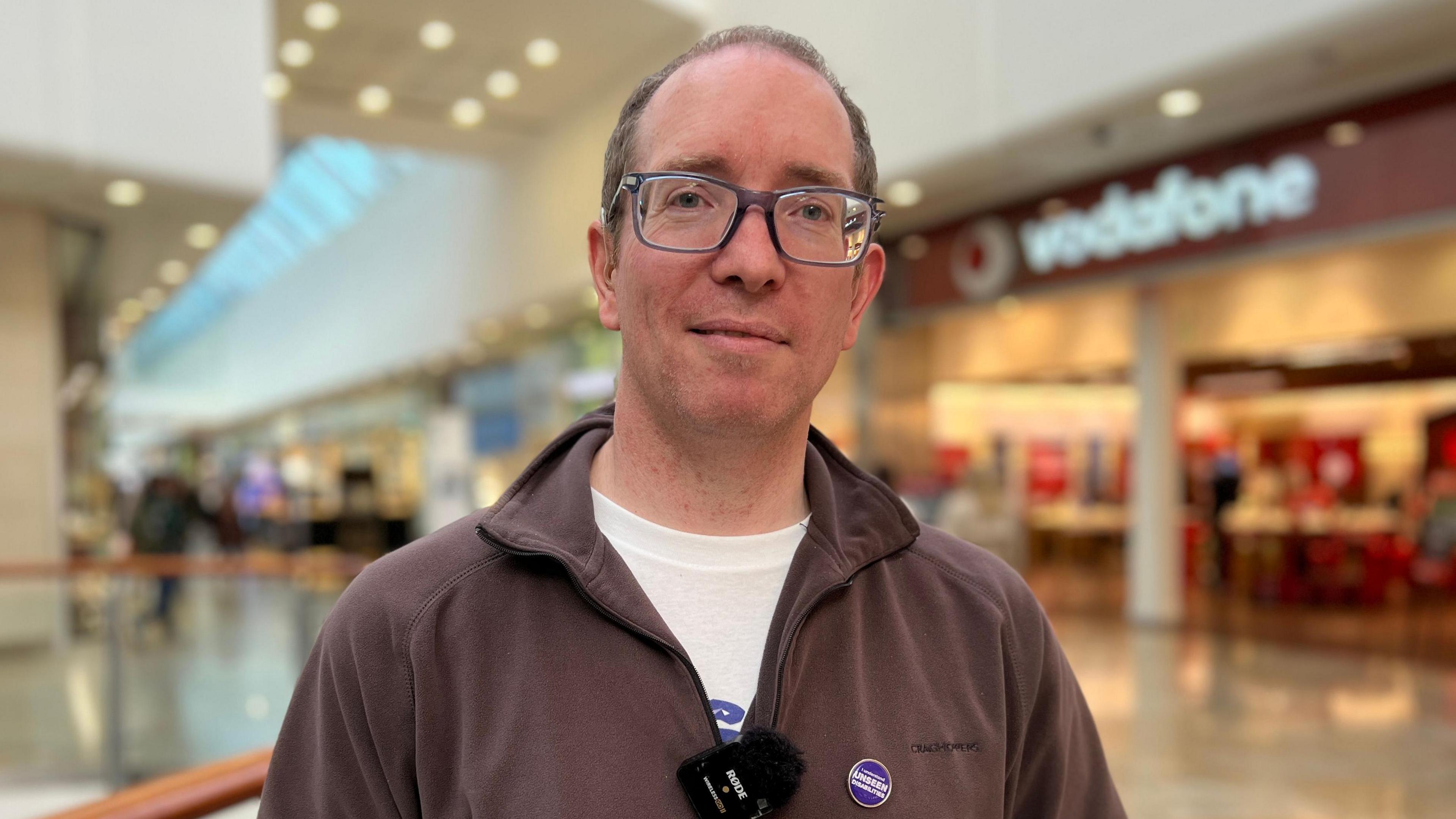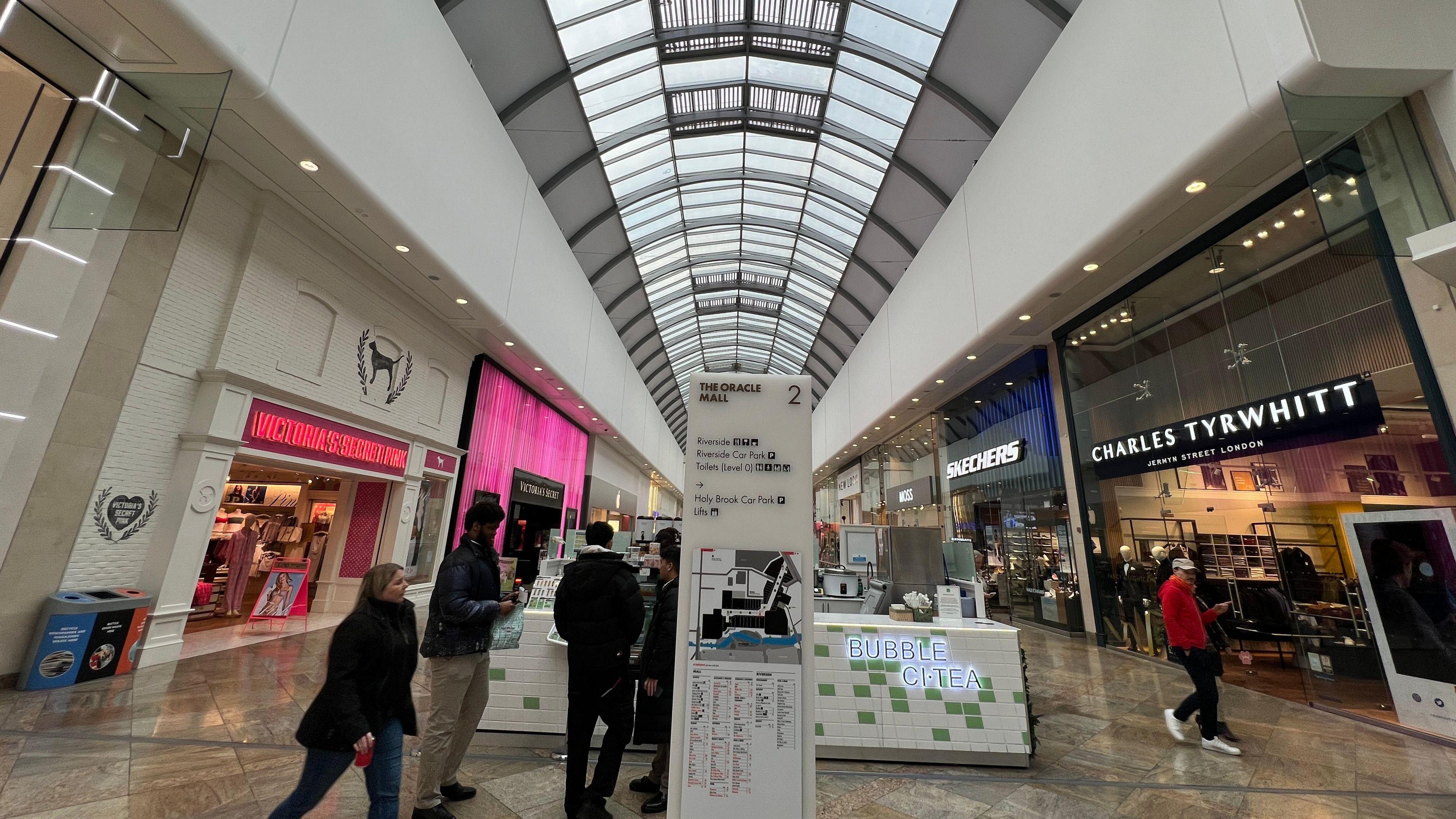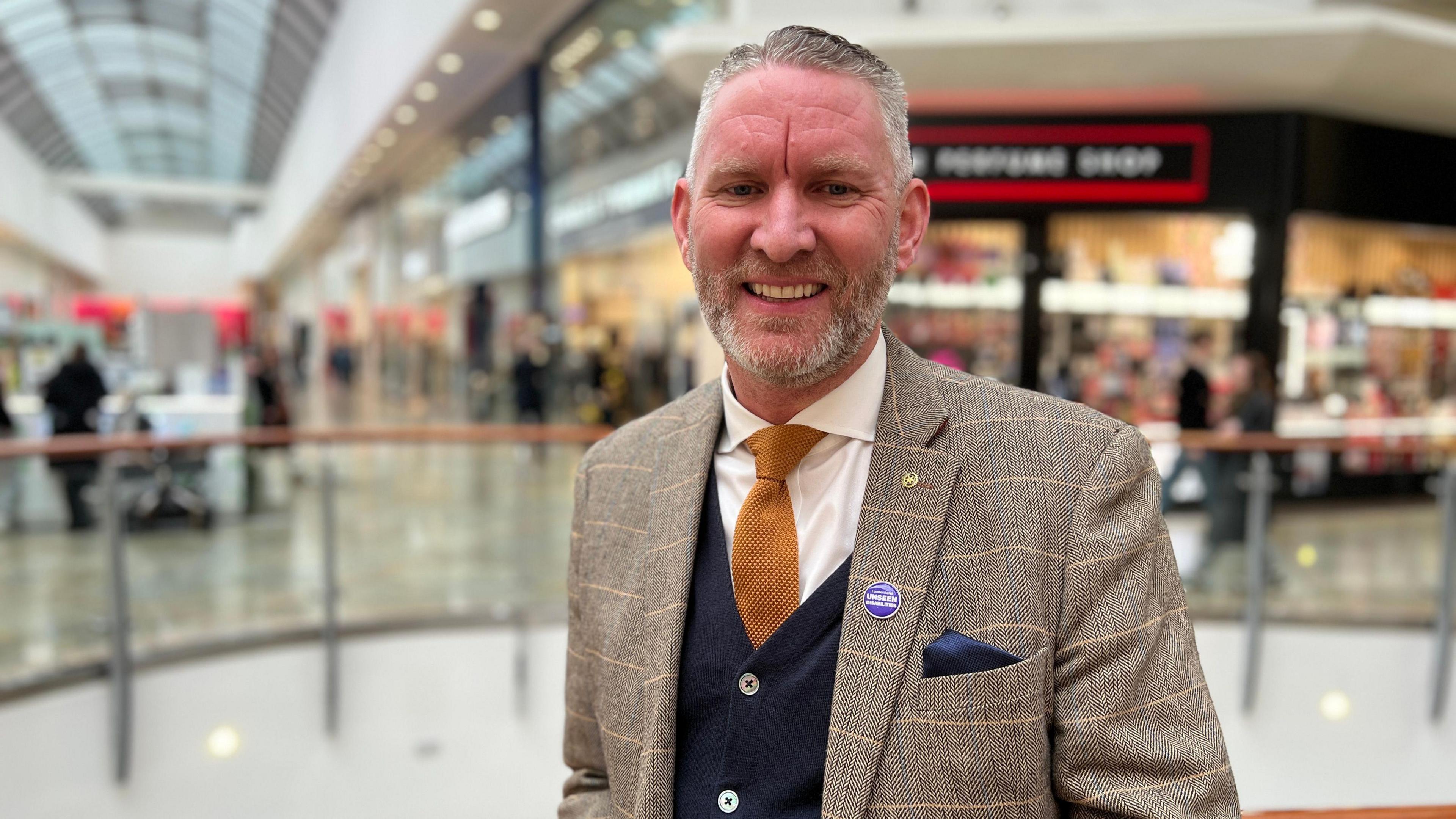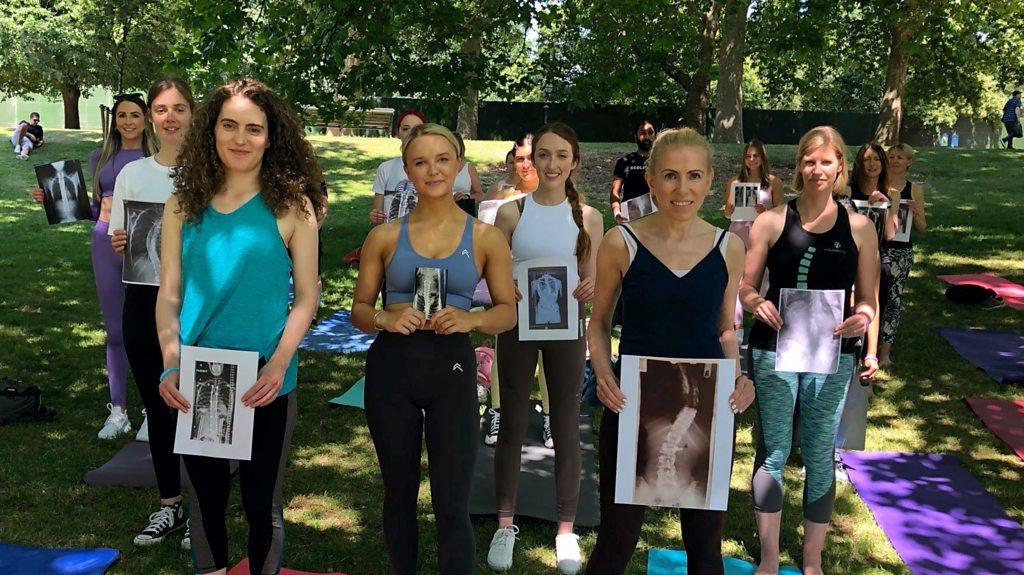Why shops need to do more for unseen disabilities

Simon Houghton said he needed to be able to lip-read in shops
- Published
For most people, retail staff multitasking while speaking to them would not be an issue.
But for Simon Houghton, who is deaf and needs to lip-read, people turning away can be the difference between him understanding what they say or not.
According to research from the Business Disability Forum, 90% of disabled people found their shopping experience was affected by a lack of accessibility, with 43% frequently abandoning their purchases as a result.
The Oracle shopping centre in Reading has launched a scheme called Unseen Aware to help staff engage with customers with hidden disabilities.
The initiative offers staff an hour-long training course designed to teach them the "principles" of becoming an unseen disabilities' ally and how to help - for example, by speaking more respectfully and challenging biases.
Mr Houghton, who started the initiative, said it could be difficult to spot if a person was struggling in a shopping centre.
"The idea behind Unseen Aware is to educate staff so that they are a bit more understanding, empathetic, patient and kind when it comes to a customer who might need some support," he said.

Shopping centres were not always accessible for people with disabilities, Mr Houghton said
Staff who have completed the training get a badge so that people with disabilities will know they have the knowledge to help them.
He said it was different to other schemes, such as the sunflower lanyard, because it put the onus on the businesses instead of on the disabled person.
Economic benefits
Oracle director Andy Briggs said it was not just people with disabilities who would benefit from the scheme - the staff would, too.
"I think a lot of people are uncomfortable when they don't understand a disability," he said.
And research from disability charity Scope estimated the spending power of disabled people the UK to be £274bn a year - so there could be economic benefits too, according to Mr Houghton.
"[The initiative says] 'if you want my business, if you want me to be the best I can, have a bit more of an understanding'," he said.

Mr Briggs said staff would benefit from the training
He said ultimately his vision for the future was that the badge would become "a mark of understanding".
"I want to break down the barriers about talking about disability," he said.
"I think that's the first step and Unseen Aware is going to achieve that."
Get in touch
Do you have a story BBC Berkshire should cover?
You can follow BBC Berkshire on Facebook, external, X (Twitter), external, or Instagram, external.
Related topics
- Published28 June 2022
